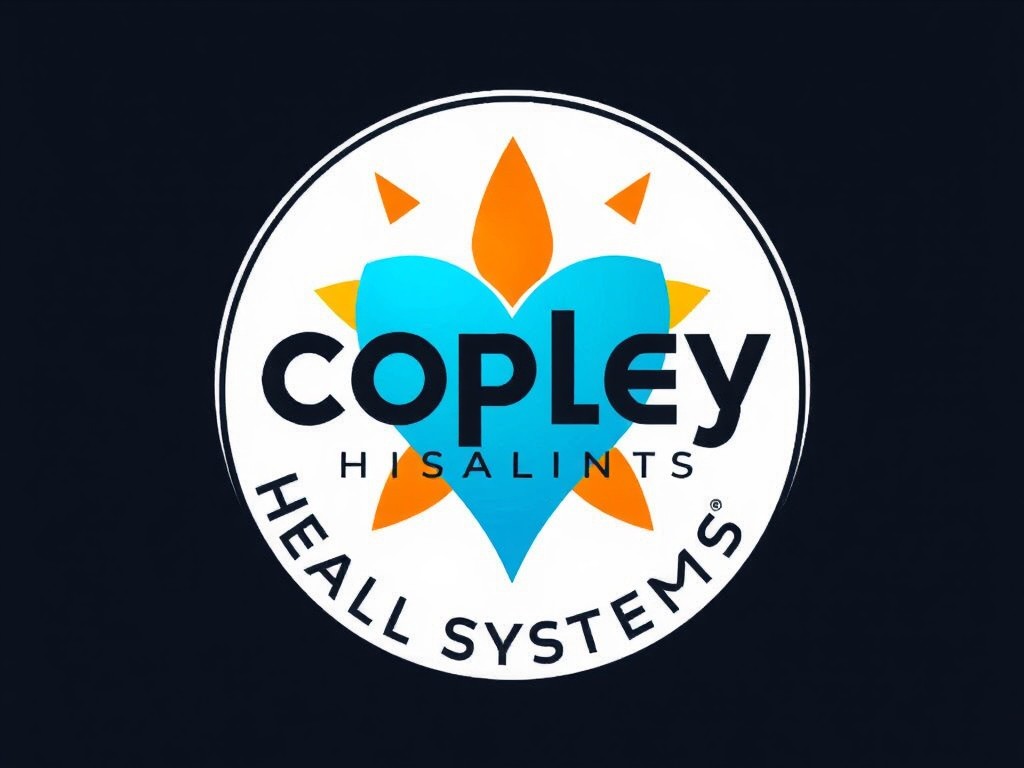Chronic sinusitis can be a frustrating battle, leaving many to seek relief without invasive procedures. UK ENT specialists offer a range of non-surgical treatments tailored to individual needs. This article explores effective alternatives, from lifestyle adjustments to innovative therapies, designed to alleviate symptoms and enhance quality of life. Discover how these options empower patients to regain control and breathe freely once more. Don’t let sinusitis dictate your daily routine—unlock the potential for relief today.
Overview of Chronic Sinusitis and Its Impact
Chronic Sinusitis is a prolonged inflammation of the sinuses lasting more than 12 weeks despite treatment efforts. It is often caused by infections, nasal polyps, or a deviated septum. This condition can significantly affect an individual’s quality of life due to persistent and uncomfortable symptoms.
Topic to read : Exploring the Role of Biologics in Accelerating Recovery for Rotator Cuff Repair: Insights for UK Orthopedic Surgeons
Common symptoms of chronic sinusitis include nasal congestion, facial pain, pressure, reduced sense of smell, and thick nasal discharge. These symptoms can be debilitating, making daily activities challenging and reducing overall productivity. For instance, nasal congestion can lead to difficulty breathing, impacting sleep and causing fatigue. Facial pain and pressure can be persistent, leading to discomfort and distraction during tasks.
The impact on quality of life is profound, as these symptoms can lead to missed workdays and social activities. Furthermore, chronic sinusitis can contribute to mental health issues like stress and anxiety due to persistent discomfort and the inability to participate fully in life.
This might interest you : Unlocking Mental Toughness: How UK Sports Psychologists Can Craft Resilience Training for Elite Athletes in Pressure-Packed Sports
Seeking timely and effective treatment is crucial. Treatments may include medications, nasal sprays, or surgery, depending on the severity. Addressing chronic sinusitis promptly can alleviate symptoms, improve daily functioning, and enhance overall well-being.
Non-Surgical Treatment Options
For those seeking relief from chronic sinusitis without surgery, several non-surgical treatments offer promising alternatives. These methods focus on alleviating symptoms and improving quality of life through less invasive means.
Common Therapies
One widely recommended approach is nasal irrigation, which involves rinsing the nasal passages with a saline solution. This method helps clear mucus and allergens, reducing congestion and discomfort. Studies have shown that regular nasal irrigation can significantly improve symptoms and is a safe, cost-effective option for many.
Decongestants are another popular choice, available in both oral and nasal spray forms. They work by shrinking swollen blood vessels in the nasal passages, easing breathing difficulties. However, it’s important to use them as directed to avoid potential side effects or dependency, especially with nasal sprays.
Effectiveness
Research indicates that these alternative therapies can be effective for managing chronic sinusitis symptoms. While they may not cure the underlying condition, they provide significant relief for many individuals. It’s crucial to consult with a healthcare provider to determine the best combination of treatments tailored to individual needs, ensuring optimal results and minimising potential risks.
Insights from UK ENT Specialists
In the realm of chronic sinusitis, the insights from UK ENT specialists provide valuable guidance. These experts offer treatment recommendations that are grounded in extensive clinical experience and research. Their expert opinions often highlight the effectiveness of non-surgical approaches, tailored to individual patient needs.
Leading specialists frequently recommend nasal irrigation as a first-line treatment. This method is praised for its simplicity and efficacy in alleviating symptoms such as nasal congestion and discomfort. In addition, decongestants are often suggested, albeit with caution regarding their use to prevent potential side effects or dependency.
Case studies from the UK illustrate successful outcomes using these methods. For instance, a patient suffering from severe nasal blockage and facial pressure reported significant improvement after consistent nasal irrigation and regulated decongestant use. Such testimonials underscore the potential of non-surgical treatments to enhance quality of life without the need for invasive procedures.
These expert opinions serve as a beacon for those navigating chronic sinusitis, offering hope and practical solutions. By adhering to specialist advice, patients can achieve symptom relief and regain control over their daily lives.
Comparative Effectiveness of Non-Surgical Treatments
Understanding the effectiveness of various non-surgical treatments for chronic sinusitis is crucial for informed decision-making. These treatments, often preferred for their less invasive nature, offer distinct benefits over surgical options.
Analysis of Treatment Comparisons
When evaluating treatment comparisons, nasal irrigation stands out for its efficacy in reducing symptoms like congestion and facial discomfort. It is often compared to decongestants, which also provide relief but may carry risks of side effects if used excessively. Both treatments are generally well-received, yet their effectiveness can vary based on individual patient needs and conditions.
Pros and Cons: Non-Surgical vs. Surgical
Non-surgical treatments are lauded for their minimal recovery time and lower risk of complications. In contrast, surgical options might offer a more permanent solution but involve longer recovery periods and potential surgical risks. Patients often prefer non-surgical methods due to their patient satisfaction and quicker return to daily activities.
Patient Outcomes
Studies highlight that patient outcomes with non-surgical treatments are generally positive, with many experiencing significant symptom relief. Recovery rates are quicker, contributing to higher patient satisfaction. However, it is essential for patients to consult healthcare providers to tailor treatments to their specific needs for optimal results.
Possible Side Effects of Non-Surgical Treatments
While non-surgical treatments for chronic sinusitis are generally considered safe, it’s important to be aware of potential side effects. Understanding these risks can help patients make informed decisions and take steps to minimise them.
Overview of Potential Side Effects
Common non-surgical treatments, such as nasal irrigation and decongestants, can sometimes lead to side effects. Nasal irrigation, if not performed correctly, may cause irritation or infection due to contaminated water. Decongestants, particularly when overused, might lead to dependency, rebound congestion, or increased blood pressure.
Recommendations for Minimising Risks
To reduce these risks, patients should adhere to recommended guidelines. Using distilled or sterile water for nasal irrigation is crucial to prevent infections. For decongestants, following dosage instructions and limiting use to short periods can help avoid adverse effects.
When to Consult a Specialist
It’s essential to consult a healthcare provider if any side effects are experienced or if symptoms persist despite treatment. Specialists can offer tailored advice, ensuring treatment safety and effectiveness. They can also recommend alternative therapies if current methods prove unsuitable or ineffective, enhancing overall treatment outcomes.
Patient Experiences and Testimonials
In the journey of managing chronic sinusitis, hearing from others can provide valuable insights. Patient experiences and testimonials offer a window into the real-world effectiveness of non-surgical treatments, highlighting personal stories of recovery and management.
Many patients have shared their positive experiences with non-surgical treatments like nasal irrigation and decongestants. For instance, one patient reported significant relief from nasal congestion and facial pressure after incorporating regular nasal irrigation into their routine. This simple, yet effective method allowed them to resume daily activities with renewed comfort.
Similarly, another testimonial highlighted the benefits of using decongestants as part of their treatment plan. This patient found that, when used correctly and in moderation, decongestants helped alleviate breathing difficulties and improved their quality of life.
Sharing these real-life stories is crucial. They not only validate the effectiveness of non-surgical treatments but also offer hope and guidance to others facing similar challenges. By learning from the experiences of others, patients can make informed decisions and feel empowered in their treatment journey. This collective feedback fosters a supportive community, encouraging individuals to explore and find the best solutions for their needs.
Preventive Tips for Chronic Sinusitis
Adopting lifestyle changes is crucial in preventing chronic sinusitis flare-ups. By incorporating specific habits, individuals can significantly enhance their sinus health and reduce the frequency of symptoms.
Lifestyle Changes for Sinus Health
One of the most effective preventive tips is to maintain a clean and humid environment. Using a humidifier can help keep the nasal passages moist, preventing irritation. It is also beneficial to avoid exposure to pollutants and allergens, as these can exacerbate sinus issues. Regularly cleaning living spaces and using air purifiers can mitigate these environmental factors.
Daily Practices for Sinus Cleanliness
Incorporating daily practices like nasal irrigation helps maintain sinus cleanliness. This method flushes out mucus and allergens, reducing the risk of infection. Staying hydrated is equally important, as it thins mucus, facilitating easier drainage. Additionally, avoiding smoking and secondhand smoke is vital, as these can inflame the nasal passages and hinder sinus health.
By focusing on these preventive tips and making conscious lifestyle changes, individuals can better manage their sinus health, reducing the likelihood of chronic sinusitis complications.
Directory of UK ENT Specialists and Clinics
Navigating the UK ENT Specialists Directory can be a pivotal step in managing chronic sinusitis effectively. This comprehensive resource lists reputable specialists renowned for offering a range of non-surgical treatments tailored to individual patient needs. These professionals are equipped with extensive clinical experience, providing expert care and innovative solutions.
When considering clinics, it’s crucial to understand the specialized services they offer. Many clinics focus on non-invasive treatments, such as nasal irrigation and personalised medication plans, ensuring a patient-centred approach. These clinics often boast state-of-the-art facilities and employ the latest technologies to enhance patient outcomes.
Choosing the right specialist involves evaluating several factors. Consider the specialist’s expertise in chronic sinusitis and their approach to non-surgical treatments. It’s beneficial to look for clinics that offer comprehensive consultations, allowing for a detailed assessment of your condition and tailored treatment plans.
To make an informed decision, consult the UK ENT Specialists Directory and explore patient reviews and testimonials. This can provide insights into the specialist’s reputation and the clinic’s success in managing chronic sinusitis, ensuring you find the best fit for your healthcare needs.
Resources for Further Information
For those seeking additional resources on chronic sinusitis, several avenues offer valuable insights and support. Engaging with these resources can deepen understanding and provide ongoing updates on treatment advancements.
Recommended Reading and Studies
Numerous studies and articles offer comprehensive information on chronic sinusitis. Medical journals and health websites often publish research findings that explore new treatment methods and the effectiveness of non-surgical options. These materials are crucial for staying informed about the latest developments.
Online Support Groups and Communities
Joining online support groups provides a platform for sharing experiences and advice. These communities offer emotional support and practical tips from individuals facing similar challenges. They can be found on social media platforms and dedicated health forums, fostering a sense of community and shared learning.
Useful Websites for Ongoing Education
Websites of renowned health organisations and clinics offer extensive resources for those interested in chronic sinusitis. These sites frequently update their content with the latest research, treatment options, and preventive measures. They serve as invaluable tools for patients and caregivers seeking to enhance their knowledge and manage their condition effectively.











